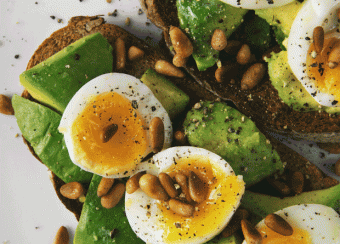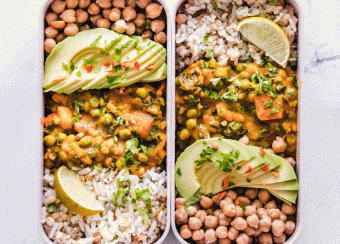5 Eco-Friendly Promises We’re Making in the New Year
28/12/2020 2021-09-26 19:13
5 Eco-Friendly Promises We’re Making in the New Year
The UN has declared the state of our world a “planetary crisis”, and we all need to change the way we live, and the way we consume. With the chaos that was 2020 drawing to an end, we think it’s the perfect time to make New Year’s resolutions that benefit the planet as a whole, and not just ourselves.
Read on for five eco-friendly promises we’re making in the New Year, and here’s to a calmer and more conscious 2021…
Think twice before you buy
The phrase “Reduce, Reuse, Recycle” may have been coined many years ago, but its relevance as a mantra has never been more important than right now. Every product we purchase has an environmental footprint, from the materials used to create it to the pollution emitted during manufacturing, to the carbon miles that bought it here and the packaging that ends up in landfills. So before you buy something, ask yourself if you really need it. If you do, consider buying gently used instead of new, and look for minimal packaging and shipping. Once you stop purchasing things you really don’t need, chances are you’ll find that your money goes further, your home is less cluttered and your carbon footprint is reduced drastically.
Choose products with biodegradable packaging
Paper, glass, and plastic are a few materials that are used in packaging to protect foods and merchandise, but once the product is unwrapped at home, chances are it’s quickly tossed out. While more and more is being recycled, it still takes a heck of a long time before these materials can be broken down. Your next best bet is choosing products with biodegradable packing made from materials like mushroom or starch, which naturally decay into soil over time. This kind of packaging is much better for the planet, and the less junk sitting in landfills that take hundreds or thousands of years to break down can only be a good thing.
It has been reported that more than 120 billion units of packaging are produced every year by the cosmetics industry alone – and the majority of it is not recycled. If this level of consumption continues, by 2050 there will be a terrifying 12 billion tonnes of plastic in landfills. With this scary stat in mind, opt for brands that strive for change.
Pay more attention to labels
From coffee to fruit to clothing, the number of options out there can get overwhelming — but there are some clear leaders when it comes to minimising your impact on the planet. If you’re a coffee drinker, look for “shade-grown” coffee, which is grown while keeping forest habitats intact for migratory birds and other species. Choose Fair Trade certified goods when possible to support companies dedicated to sustainable production and paying labourers a fair wage. Buy organic food whenever possible – it may cost a little more, but it keeps harmful pesticides out of our land and water, protecting farm workers, wildlife and your family. And if price is an issue look to buy seasonally – an abundance of a certain produce keeps its cost down, and you know it will be its optimum best for eating.
Drive less
We all know that public transport can be a pain in the proverbial, but it’s a fact that changing your driving habits can dramatically reduce your carbon footprint. Walk, bike, carpool or use public transportation whenever possible, or make an effort to combine your various errands to make fewer trips. It’s also important to keep your car in shape with regular tune-ups and tyre inflations. Did you know tune-ups can increase your fuel efficiency by 4 per cent to an incredible 40 per cent? Keep regular dates with your mechanic and start hitting the streets on foot – your health and the planet will thank you for it!
Get composting
Did you know that when food scraps and grass clippings – ideal compost fodder – end up in landfills and decompose without access to oxygen, they release methane gas, which is many times more potent than carbon dioxide? This is where we can all make a difference by choosing to compost.
Composting can sound intimidating and more than a little confusing, but trust us, it’s really easy! All you need are a few essentials: brown ingredients like dirt or dried leaves, green ingredients like food scraps, and water. You can compost outside if you have space, or for those who don’t have a backyard, opt for a small bin like a countertop composter collector. Organic materials like eggshells, leaves, and veggies peel reportedly make up over 28 per cent of wastes consumers tend to throw away, but these can easily be turned into nutrient-rich soil through composting. So go on, grab a bin and make food waste part of the solution to climate change, as opposed to part of the problem!




















